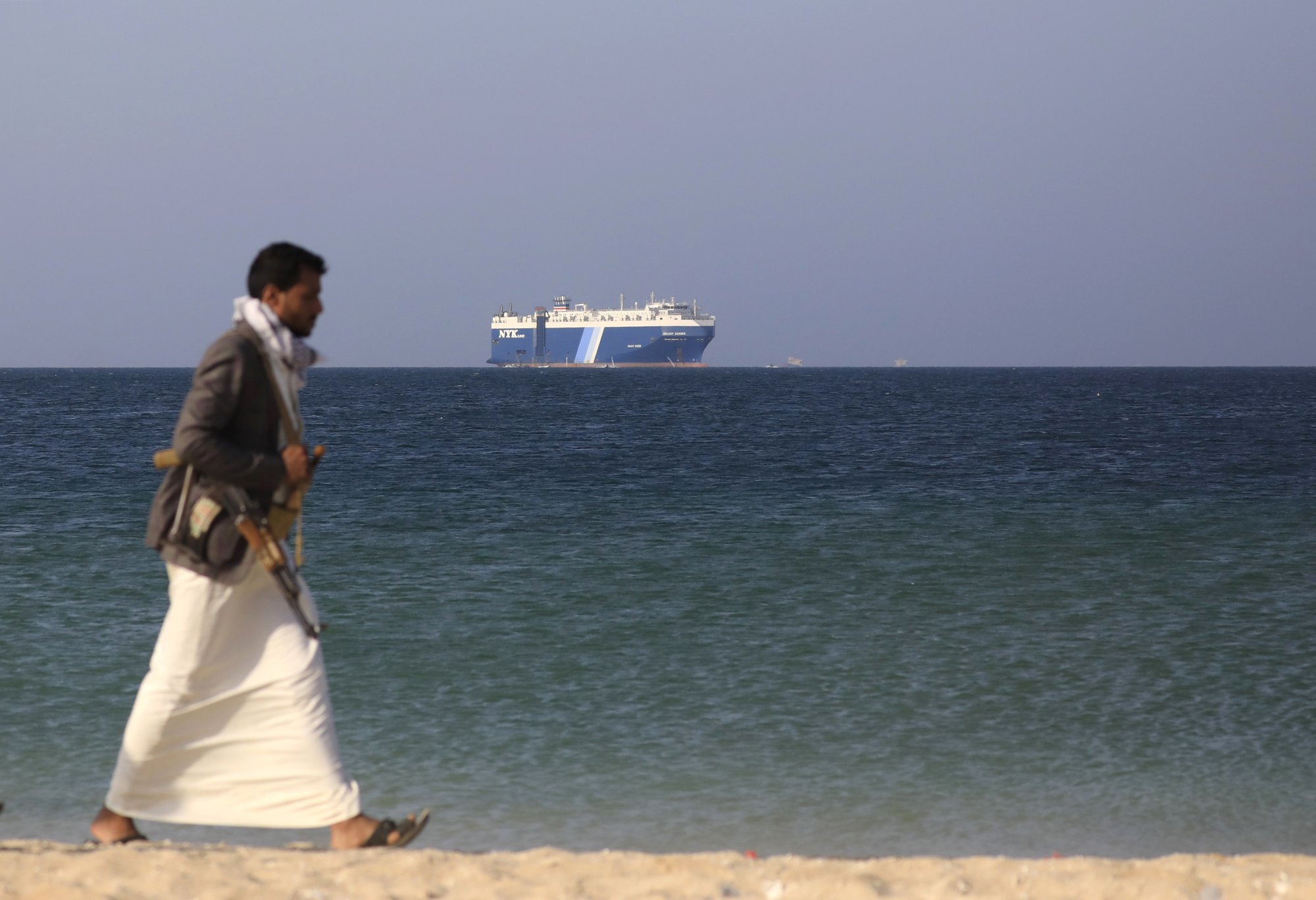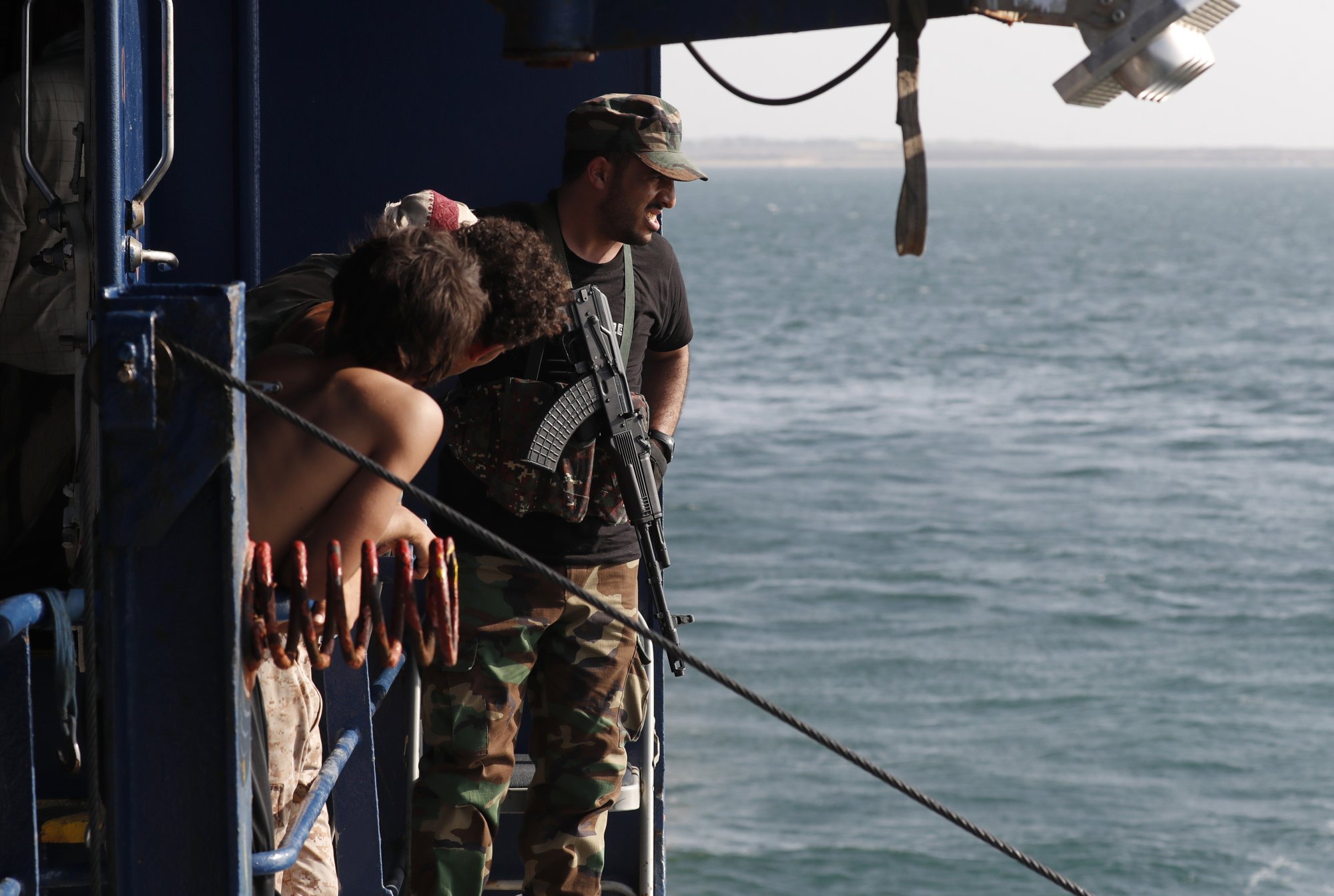
‘Fragile’ Saudi peace efforts in Yemen hamper US response to Houthi attacks amid Israel-Gaza war
- Saudi Arabia has for the past 18 months been seeking to ‘disentangle itself’ from Yemen’s civil war involving Houthi rebels
- But ‘escalatory actions’ could trigger another conflict in the Middle East that does not serve either Saudi or US interests, analysts say

The details of the proposed deal were reportedly shared on Monday with Yemen’s government – which is still recognised as legitimate by the international community despite being barely functional – after Saudi Foreign Minister Prince Faisal bin Farhan met US Secretary of State Antony Blinken in Washington on December 9.
The US State Department said Blinken “welcomed Saudi Arabia’s efforts to secure a durable peace agreement in Yemen, launch a Yemeni-Yemeni political dialogue under UN auspices, and ensure Yemeni actors remain focused on that effort”.
That same day, the Houthis – who control much of northern Yemen and two ports at the mouth of the Red Sea – announced they had extended a maritime embargo against Israeli-owned vessels that they imposed in early November to include ships set to call at Israeli ports.
Before the meeting between the Saudi and US foreign ministers, Riyadh had asked Washington to show restraint in responding to the Houthi attacks, Reuters reported on December 7.
Will Yemen’s Houthis keep China from being a global diplomatic power broker?
Both Saudi Arabia and Egypt “are heavily reliant on freedom of navigation through the Red Sea bottleneck” for trade and energy shipments, Wright said.
“They appear to prefer relying on deterrence patrols by the US and international naval forces, rather than direct intervention against the Houthis themselves, at this unstable time,” he said.

Saudi Arabia – along with other Gulf monarchies that were previously part of the anti-Houthi coalition formed by Riyadh in 2015 – has turned down US calls for them to join a proposed multinational naval task force to patrol Yemen’s coastal waters, which connect the Indian Ocean to the Suez Canal via the Bab El-Mandeb Strait.
Out of the 39 member states of the existing US-led combined task force, which works to ensure freedom of navigation in the Persian Gulf and western Indian Ocean, only a dozen countries have shown willingness to help secure the passage of shipping through Bab El-Mandeb.
The Houthis’ attacks on shipping in the Red Sea “presents a distinct challenge” said Hesham Alghannam, director general of the Security Research Centre at Naif Arab University for Security Sciences in Riyadh.
“A similar scenario unfolded” in 2018 when the Houthis attacked Saudi oil tankers but “the international community did not intervene”, leading the kingdom to suspend oil shipments through the Red Sea for several months, he said.
Houthi cruise missile strikes Norwegian tanker in Red Sea off Yemen
“The goal of the international community should be to prevent the war in Gaza from spilling over,” he said.
Responding to the Houthi attacks on Israel-bound ships, Israeli President Isaac Herzog said the Houthis had “crossed a red line in the Red Sea”.
US-led international activities against the Yemeni rebels “must be bolstered and strengthened”, he said on Wednesday in comments on social media platform X, urging the international community to unite and act “forcefully and decisively” against the threat to global economy and trade.
Like US officials have previously, Herzog accused the Houthis of acting at the behest of Iran because the Yemeni group is part of the Tehran-led Axis of Resistance, which also includes Hamas, Lebanon-based Hezbollah and two Iraqi militia groups.
But analysts cautioned against reading too much into the relationship between the Houthis and Iran, even though Tehran has been arming the Yemeni insurgents since they kicked off the country’s civil war nearly a decade ago.
Unlike Hezbollah, the Houthis have their own independent priorities and agenda, regional observers said.
“We shouldn’t necessarily see the Iranian hand in the Houthis’ recent attacks in the Red Sea,” said Camille Lons, a visiting fellow at the European Council on Foreign Relations (ECFR) in Berlin.
While Iran may view the Houthis’ attacks “positively” and as a way to “keep up the pressure on Israel and the US and demonstrate their regional influence”, Tehran has “no interest in seeing a full escalation” in the region, she said.

Doha-based professor Wright agreed, saying the Houthis should “not be categorised as mere Iranian proxies”.
Their ideology and motivations are “predominantly indigenous, stemming from local grievances within Yemen rather than external direction by Iran”, he said.
However, it is a risky strategy, Wright said, as “disrupting shipping provokes global attention, while aggression against Israel is low cost for the Houthis”.
“Ultimately, the Houthis are strategically posturing” over events in Gaza “to strengthen their political hand” both domestically and in ending Yemen’s conflict on favourable terms, Wright said.
Iran-Saudi ties: China-brokered ‘win-win’ deal could bring Yemen war to a close
Saudi analyst Alghannam said the Houthis’ actions in the Red Sea appeared to be a “strategic response to Israel’s war on Gaza, aimed at expanding their influence and showing that they are capable of exerting pressure on the international community”.
By positioning themselves as defenders of the Palestinians, the Houthis “aim to garner popularity and legitimacy”, he said.
The ECFR’s Lons said the war in Gaza had greatly undermined Washington’s policy of making Israeli-Gulf cooperation in the Red Sea “a cornerstone of its strategy in the region, based on their shared concern over Iran’s re-emerging influence” in the waterway.
The US convened joint naval exercises in the Red Sea between Israel and the Gulf states in 2021-2022, and laid the ground for Israel’s joining of the combined maritime forces based in Bahrain, she noted.
It also spearheaded diplomatic efforts to transfer the islands of Tiran and Sanafir, which can control Israel’s access to the Red Sea, from Egypt to Saudi Arabia.
“Now, the war in Gaza means that Red Sea security cooperation is unlikely to happen any time soon, as Arab Gulf states such as Saudi Arabia are now unwilling to proceed with Israeli normalisation,” Lons said.

